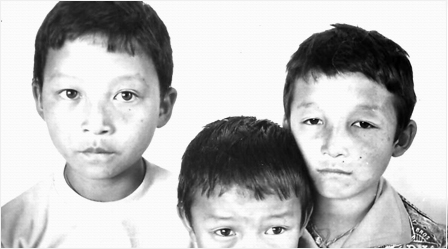In Tibet, despite brief intervals of relaxation, the relentless move to subsume the Tibetan identity and way of life completely under Chinese dominance has not let up. In exile we have made great efforts to preserve and promote the Tibetan cultural heritage believing not only that Tibetans benefit from it, but also that humanity as a whole would be the poorer if it were lost. We have educated our children and reestablished our various religious, cultural and administrative institutions. We could have achieved little of what we have done without tremendous help from many quarters, just as I believe we will not secure freedom in Tibet without further international help and support.
Circumstances remain very tough for Tibetans in Tibet and opportunities for improvement are few and far between. Those of us who live in exile are free from the fear and oppression, but even a refugee’s life is marked by insecurity and uncertainty. This is why we value so highly the friendly assistance we continue to receive, not only in financial and material support, but in the personal contributions of volunteers who give us their time, their expertise and their care.
In this book, Lesley Tsering candidly describes her own experiences teaching for a year at a Tibetan vocational training institute in North India. She has included the ups and downs without glossing over the difficulties and frustrations she faced. But it is her concern for the young Tibetan students in her care that shines through and telling her own story provides an opportunity to recount theirs.

These accounts of the difficulties of life in Tibet, the hazards of escape over the mountains, the bewildering changes of life as a refugee are not new, they have been told by others many times over the last forty years. But they were new to Lesley Tsering and I imagine will still be moving to many other people previously unaware of what happened in Tibet. I am convinced that dignity and freedom will ultimately be restored in the Land of the Snows. And I am equally determined that this just result must be achieved by peaceful, non-violent means, taking what I call a middle way approach to our problems. If we are to succeed, we need widespread international support. I feel sure that people read this book will be inspired to lend their backing to our cause.

